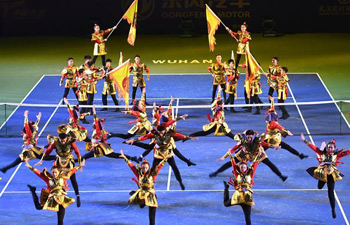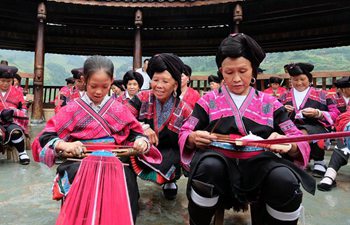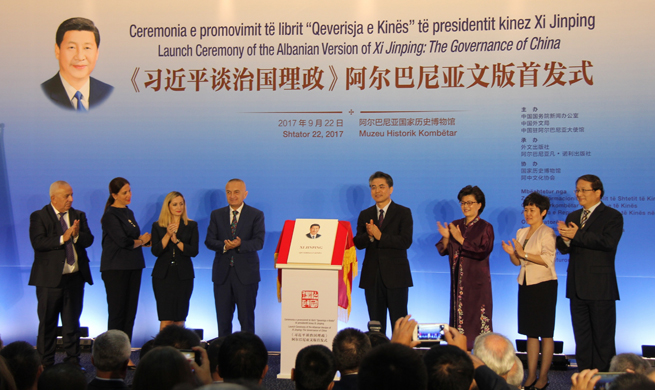by Eric J. Lyman
ROME, Sept. 24 (Xinhua) -- The Five-Star Movement, Italy's anti-establishment political party that has upended the Italian political system since its emergence in 2010, has entered a new phase in its history on Saturday, when it announced 31-year-old former waiter and day laborer Luigi Di Maio as its candidate to become prime minister in next year's election.
Now Di Maio will formally take over the leadership of the party from Beppe Grillo, the comedian and activist who founded the party.
The two men seem to have little in common. Grillo is loud, often vulgar, emotional, and easily identifiable by his rumpled clothes, unkempt hair, and greying beard. Di Maio, meanwhile, is soft-spoken, measured, and almost always impeccably dressed and groomed. At the age of 69, Grillo is more than twice as old as Di Maio.
"In terms of style, Grillo and Di Maio could hardly be more different," Alberto Castelvecchi, an independent image consultant and a communications professor at Rome's LUISS University, told Xinhua. "As strange as it seems, Di Maio seems to have success so far with a communications strategy that involves doing the opposite of what Grillo would do, in the very movement Grillo founded and helped to shape."
It is not clear what will follow Di Maio's selection as the Five-Star Movement candidate in elections set to take place in the first half of next year, according to Federico Castornia, president of Cultura Democratica, a think tank.
Though Grillo said he will surrender the formal leadership of the movement after a prime minister candidate is selected, Castornia said it is possible Grillo will remain a behind-the-scenes force in the party. And it is unclear whether the movement will revisit its stance on potential alliances under Di Maio's leadership.
"Even if the Five-Star Movement manages to win the most votes in the next election it is not clear what Di Maio's path to the prime minister's job would be unless the movement changes its policies on collaborating with other parties," Castornia said in an interview. "But things could change. A few months ago, nobody could have predicted Di Maio would be in the position he is today."
Di Maio entered politics only in 2013, running for parliament from a district near the southern Italian city of Naples following a desultory career that included stints waiting on tables, working as a day laborer, and designing web sites.
Castelvecchi said Di Maio has managed to leave that past behind and become a political force through careful study and preparation.
"He is not an intellectual, but he is a smart student of the way the game is played," the professor said. "He is like the man who arrives in Las Vegas understanding the detailed rules of every game, able to understand every little advantage. The officials who opposed him within the Five-Star Movement were not nearly so prepared."
But Castelvecchi said that preparation helps mask a lack of new or innovative ideas that might make Di Maio an effective political leader.
"Everything he does is studied," Castelvecchi said. "He studies how to communicate, how to present himself, who to appeal to a broad audience. So far, it seems to be working. But it's more style than substance, and governing effectively requires substance."
With the elections approaching, polls show the Five-Star Movement and the more traditional Democratic Party, led by former Prime Minister Matteo Renzi, in the strongest position. Forza Italia, led by billionaire media tycoon and another former prime minister, Silvio Berlusconi, and the separatist and euro-skeptic Northern League are further behind.

















